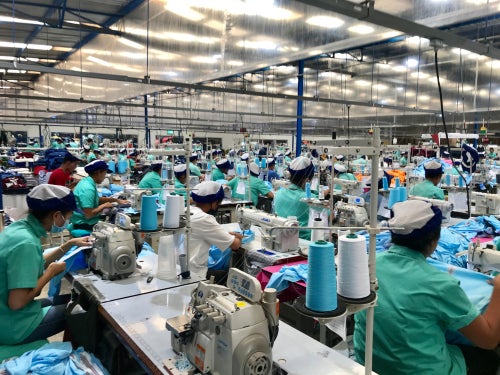
A new report from the International Labour Organization (ILO) argues collective bargaining can be an effective tool for advancing and fostering inclusion.
The higher the coverage of employees by collective agreements, the lower the wage differences are, according to Social Dialogue Report 2022: Collective bargaining for an inclusive, sustainable and resilient recovery, which is based on a review of collective agreements and practices in 80 countries at different levels of economic development and the legal and regulatory frameworks in 125 countries.
Collective bargaining report highlights
Collective bargaining can contribute to narrowing the gender pay gap. Over half (59%) of the collective agreements reviewed by the ILO study reflect a joint commitment by employers or their organisations and workers’ organisations (particularly trade unions) to address gender inequality by ensuring equal pay for work of equal value, providing for parental and family leave and addressing gender-based violence at work.
According to the report, over a third of employees (35%) in 98 countries have their wages, working time and other conditions of work set by autonomous collective negotiations between a trade union and an employer or employers’ organisation. But there is a considerable variation across countries, ranging from over 75% in many European countries and Uruguay to below 25% in around half of the countries for which data is available.
The report also found collective bargaining has played a role in mitigating the impact of the pandemic on employment and earnings and has helped cushion some of the effects on inequality while reinforcing the resilience of enterprises and labour markets by supporting the continuity of economic activity, explains the study.
Collective agreements signed to facilitate Covid telework are evolving into more durable joint frameworks for decent hybrid and tele-working practices. They address issues such as changes in work organisation, adequate training and costs related to telework. Some address cybersecurity and data protection.

US Tariffs are shifting - will you react or anticipate?
Don’t let policy changes catch you off guard. Stay proactive with real-time data and expert analysis.
By GlobalData“Collective bargaining has played a crucial role during the pandemic in forging resilience by protecting workers and enterprises, securing business continuity, and saving jobs and earnings. It has provided an effective means for employers and workers to agree on inclusive solutions to shared concerns or challenges and mitigate the effects of current and future crises on the economy, enterprises and workers,” said ILO Director-General Guy Ryder.
How collective bargaining has impacted the clothing sector
The report found (based on data from the ILO’s Better Work programme) garment-producing enterprises covered by collective agreements had higher levels of compliance with OSH standards in 2020–21 than those not covered by collective agreements.
Garment factories have been severely affected by the Covid crisis and have experienced significant disruptions to production orders. They adjusted by negotiating measures to protect employment and by minimising the risk of transmission in the workplace. Analysis of data on compliance with OSH measures in 393 garment factories in Cambodia, Jordan and Vietnam during the pandemic shows that those factories with a collective agreement also reported better compliance with OSH measures. Importantly, non-compliance with OSH standards was lower in factories with a collective agreement than in those without one.
Priorities to address for collective bargaining to work effectively
The ILO report adds collective bargaining will be an essential tool to achieve a “human-centred recovery,” as the world moves to more diverse work arrangements including temporary, part-time and on-call work, multi-party employment relationships, dependent self-employment and, most recently, platform work performed under different work and employment relationships.
As a form of co-regulation, collective bargaining can make an important contribution to the inclusive and effective governance of work, with positive effects on stability, equality, compliance and the resilience of enterprises and labour markets.
Revitalising employers’ and workers’ organisations
A human-centred recovery implies that employers and workers have a voice in decisions and policies affecting them. The representative character of Employer and Business Membership Organizations (EBMOs) and trade unions – both in terms of their membership strength and their capacity to integrate diverse interests – is the bedrock of effective social dialogue, including social collective bargaining.
Realizing the effective recognition of the right to collective bargaining for all workers
In view of the transformative changes that are under way in the world of work, it is necessary to strengthen the institutions of work to ensure adequate protection for all workers, including the effective recognition of the right to collective bargaining.
Promoting an inclusive, sustainable and resilient recovery
Collective bargaining needs to address inequality and exclusion, ensure economic security, facilitate a just transition, achieve working-time flexibility and improve work-life balance, pursue a transformative agenda for gender equality and promote sustainable enterprises.
Supporting the implementation of the 2030 Agenda for Sustainable Development Goals (SDG)
The role of employers’ and workers’ organisations is critical to attain SDG Goal 8 (on decent work and economic growth) and can also support other SDGs.



